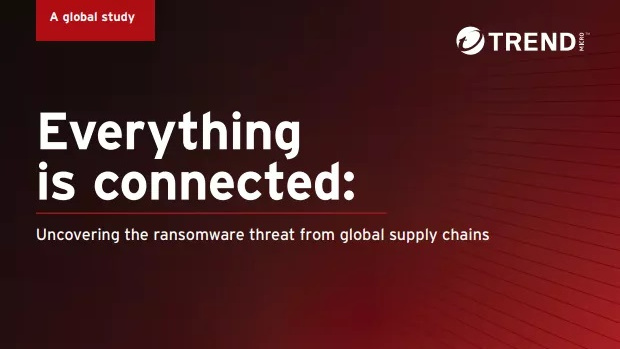Need to Know: The ‘Clampi’ online banking Trojan
Clampi isn’t new, and it is only one of a number of serious threats to UK online banking users. We look at the facts in this cheat sheet.

A Trojan virus called Clampi' has been reported by the national papers as being a new' threat, but in reality it's just one of the botnets already out there targeting businesses and individuals.
What is it?
Claimpi is a Trojan. It works by infecting a computer when a user visits a website that hosts malicious code.
It sits unnoticed on an operating system until a user logs on to a banking website, and sends the details to a server run by criminals that can take advantage of associated account details.
When was it born?
Contrary to reports, Clampi is not new. In fact, it has been around in one guise or another since 2005.
Is there anything particularly new about it?
Sign up today and you will receive a free copy of our Future Focus 2025 report - the leading guidance on AI, cybersecurity and other IT challenges as per 700+ senior executives
Security company Symantec says that it is still researching Clampi but couldn't say there was anything new or different about the threat that wasn't already known in the security world.
"The Clampi virus might be the next big threat' for computer users, but it has actually been around in one guise or another since 2005," said Rob Cotton, chief executive of NCC Group.
How much of a threat is it?
Rik Ferguson, solutions architect at Trend Micro, doesn't see anything particularly unique or new about Clampi that researchers have uncovered to make it the next big threat'.
Many reports have suggested that Clampi is a nationwide threat. But Ferguson thinks it is not unique in that respect. "To be honest, that can be said about botnets in general," he said.
"Botnets are definitely the delivery platform of choice for cyber crime because it allows them to operate in a distributed fashion. It allows them to benefit from things like high availability and economies of scale that legitimate businesses can benefit from."
He added: "[Criminals] keep repacking and modifying the code to fly under the radar of signature based detection."
What can I do to protect against Clampi and other threats?
Common sense thinking appears to be the order of the day, according to security experts.
"As with most of these nationwide threats', a little common sense goes a long way keep your security systems up to date, don't click on suspicious links, change your passwords regularly," advised Cotton.
Matt Hampton, chief technical officer at Imerga, said that consumers and businesses should use simple measures such as anti-virus and firewalls, as well as the appropriate Microsoft security patches.
"Additionally, online bankers should use a bank that uses two-factor authentication before allowing bank transfers," he said.
"This means that your password is never the same, so the snooping would only allow the malicious individual to transfer money between your existing accounts."
Want to read more background on the latest IT topics? Click here for all the tech cheatsheets in our Need to Know series.
-
 Will autonomous robotics leap forward in 2026?
Will autonomous robotics leap forward in 2026?In-depth Connectivity and cost benefits remain barriers, despite breakthroughs in physical AI
-
 AWS and NTT Data team up to drive legacy IT modernization in Europe
AWS and NTT Data team up to drive legacy IT modernization in EuropeNews Partnership between AWS and NTT DATA aims to boost AWS European Sovereign Cloud capabilities
-
 Trend Micro issues warning over rise of 'vibe crime' as cyber criminals turn to agentic AI to automate attacks
Trend Micro issues warning over rise of 'vibe crime' as cyber criminals turn to agentic AI to automate attacksNews Trend Micro is warning of a boom in 'vibe crime' - the use of agentic AI to support fully-automated cyber criminal operations and accelerate attacks.
-
 Exploitation of Docker remote API servers has reached a “critical level”
Exploitation of Docker remote API servers has reached a “critical level”News Hackers are targeting Docker’s remote access API as it allows them to pivot from a single container to the host and deploy malware with ease
-
 Cyber criminal underground “thriving” as weekly attacks surge by 75% in Q3 2024
Cyber criminal underground “thriving” as weekly attacks surge by 75% in Q3 2024Cyber attacks reached another all-time high this quarter as digital crime continues to be a highly profitable industry for threat actors
-
 Alarm raised over patched Phemedrone Stealer malware that's being used to target Windows PCs - here's what you need to know
Alarm raised over patched Phemedrone Stealer malware that's being used to target Windows PCs - here's what you need to knowNews Phemedrone Stealer is being used to exploit a vulnerability in Windows Defender SmartScreen despite the issue being patched in November 2023
-
 SOC modernization and the role of XDR
SOC modernization and the role of XDRWhitepaper Automate security processes to deliver efficiencies across IT
-
 Uncovering the ransomware threat from global supply chains
Uncovering the ransomware threat from global supply chainsWhitepaper Effectively mitigate ransomware risk
-
 The near and far future of ransomware business models
The near and far future of ransomware business modelsWhitepaper Discover how criminals use ransomware as a cyberweapon
-
 Trend Micro security predictions for 2023
Trend Micro security predictions for 2023Whitepaper Prioritise cyber security strategies on capabilities rather than costs